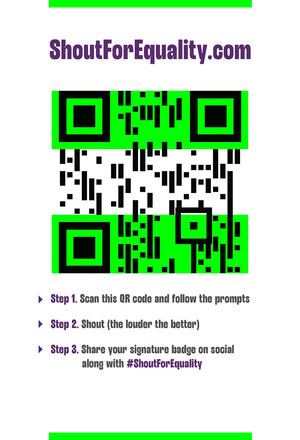Traditional Media Trumps Threat Of Fake News According To Annual Ogilvy Media Influence Survey
Higher Standards for Authenticity Challenge Media Outlets and Brands Today to Reinvent Storytelling
NEW YORK, Sept. 6, 2017 /PRNewswire/ -- Results released today from part two of Ogilvy Media Influence's annual global survey of more than 250 reporters and producers found that the rise in reports of "fake news" has elevated trust in traditional media, contrary to prevailing sentiment that the recent deluge of misinformation has eroded trust in legacy media sources. The survey found that journalists worldwide agree that better reporting – such as comprehensive fact-checking and citing credible sources – is necessary to combat fake news. The results, which identify social media as a key catalyst of the fake news phenomenon, further illuminate the findings of the first half of the Ogilvy Media Influence survey, released in June 2017, in which Facebook had emerged as the new number one media gatekeeper.
"The fragmentation of media has dramatically multiplied how consumers get their news, posing both a challenge and an opportunity for brands to tell their stories," said Jennifer Risi, worldwide chief communications officer at Ogilvy. "If brands want to compete in a fake-news environment, they must communicate and build trust with consumers, leveraging the trifecta of traditional, digital and social media platforms to tell their stories in a way that is authentic and true to their brand."
Another notable result is that an overwhelming number of respondents say that the political climate has changed the way they report stories – suggesting that heightened political activities and the resulting dialogue are playing an increased role in transforming journalists' reporting strategies.
Key Findings:
- More than half of journalists worldwide (52%) find traditional media to be the most trusted news sources, followed by company websites and press releases (22%).
- North America – Traditional media, 59%; company websites and press releases, 15%.
- EMEA – Traditional media, 47%; company websites and press releases, 22%.
- Asia Pacific – Traditional media, 50%; company websites and press releases, 29%.
- The current political climate has changed the way journalists have reported stories in the last 12 months.
- North America – More than half of journalists (54%) have changed their reporting methods.
- EMEA – 41% of journalists have altered their reporting based on the political climate.
- Asia Pacific – 34% of reporters have adjusted their practices.
- Globally, journalists believe social media (25%), polarized media coverage (14%) and confirmation bias (14%]) have contributed the most to the rise of fake news. Reporters in EMEA (14%) and Asia Pacific (17%) also believe money is a contributing factor to its rise.
- North America – Journalists find that social media (24%), polarized media coverage (17%) and confirmation bias (14%) have advanced the phenomenon of fake news.
- EMEA – Reporters believe fake news is amplified by social media (24%), polarized media coverage [16%] and money (14%).
- Asia Pacific – Reporters attribute the rise of fake news to social media (26%), confirmation bias (17%) and money (17%).
"The value of earned media cannot be overstated, as the brands we represent rely on trust and credibility in the media to tell their stories. The threat of alternative facts and fake news is real, but the survey findings are a welcome indication that earned media is resilient and remains a cornerstone in modern communications programs," Risi added.
These survey findings reflect the second half of a two-part survey that the Ogilvy Media Influence team conducted in April 2017. Results from the first half of the survey, which explored reporting strategies in an increasingly digital world, were unveiled during the Cannes Lions International Festival of Creativity in June 2017. The results reflect feedback collected by the Ogilvy Media Influence team members in 22 offices across North America, EMEA and Asia Pacific.
About the Survey
The Ogilvy Media Influence team fielded an eight-question survey of 255 news media professionals across the North American, Asia Pacific and EMEA regions. The survey assessed new strategies for an increasingly digital world and focused on the sentiments of reporters, editors and producers who cover a vast range of topics, including national, business, financial, legal and human resources news, as well as consumer trends, technology, entertainment, politics, healthcare, travel and multiethnic communities. The survey was conducted via phone and email.
About Ogilvy
Ogilvy is one of the largest marketing communications companies in the world. It was named the Cannes Lions Network of the Year for five consecutive years: 2012, 2013, 2014, 2015 and 2016; the Effie Awards' World's Most Effective Agency Network in 2012, 2013 and 2016; and Adweek's Global Agency of the Year in 2016. The company is comprised of industry-leading units in the following disciplines: advertising; public relations and public affairs; branding and identity; shopper and retail marketing; healthcare communications; direct, digital, promotion and relationship marketing; consulting, research and analytics; branded content and entertainment; and specialist communications. Ogilvy services Fortune Global 500 companies as well as local businesses through its network of more than 500 offices in 126 countries. It is a WPP company (NASDAQ: WPPGY). For more information, visit http://www.ogilvy.com, or follow Ogilvy on Twitter @Ogilvy and on Facebook.com/Ogilvy.
Media Contact:
Tara Mullins
212-880-5243
[email protected]
SOURCE Ogilvy
WANT YOUR COMPANY'S NEWS FEATURED ON PRNEWSWIRE.COM?
Newsrooms &
Influencers
Digital Media
Outlets
Journalists
Opted In



Share this article